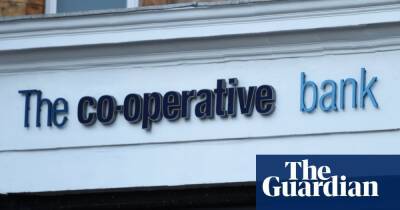‘Milestone year’: hedge funds mull future of revived Co-op Bank
Nearly every UK bank has struggled over the past decade managing the fallout of multi-billion pound taxpayer bailouts, business scams or devastating IT meltdowns. But few have faced quite as many scandals, near-failures and turnaround efforts as the Co-operative Bank.
During that period the mid-size lender has teetered on collapse, its former chief executive was charged for drug possession, it has been bailed out by a group of hedge funds, and it has changed its boss six times in nine years.
But the bank, which has its roots in the ethical cooperative movements and was formed in 1872, has survived the fallout of the so-called Crystal Methodist scandal and is now enjoying relative stability under its hedge fund owners, who have seen it to its first profit in a decade.
Its newest chief executive, Nick Slape, is insistent that the bank’s 150th anniversary this year will be a turning point. He says it is an opportunity to look beyond recent scandals and spark new excitement over the UK’s “original ethical bank”, which reported on Thursday a £31m profit for 2021 – its first since 2011. The Co-op Bank also more than tripled its bonus pot for bankers to £13.3m after what it described as a “milestone year”.
Slape’s team have been rifling through archives to prepare for November’s anniversary. The bank traces its origins to the 1872 establishment of the Co-operative Wholesale Society, the body that would become the Co-operative Group. It was meant to provide financial services to the wider cooperative movement in Britain, in which member-owned businesses worked for the common good.
While the bank has since separated from the group, having been taken over by its hedge fund investors as part of a £700m rescue deal in 2017, and no longer
Read more on theguardian.com




















